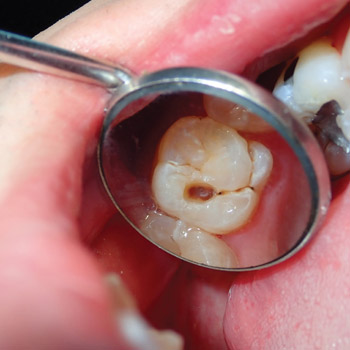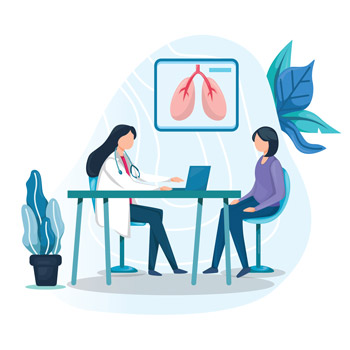The waning and boosting of COVID-19 immunity
ACP and Annals of Internal Medicine's sixth COVID-19 forum examined progress amid the pandemic in the past year.
When ACP and Annals of Internal Medicine began holding virtual forums on COVID-19 in October 2020, speakers were expressing their hope for a vaccine. The most recent, sixth forum, on Oct. 8, focused on whether the vaccines are still effective enough.
“We're very fortunate compared to where we were exactly a year ago, when we started doing these forums,” said Deborah Cotton, MD, MPH, FACP, deputy editor of Annals, who led the forum. (It was summarized in an article published by Annals on Oct. 12 along with a recording of the live event.)

Forum panelist John R. Mascola, MD, director of the Vaccine Research Center at the National Institute of Allergy and Infectious Diseases in Bethesda, Md., reviewed the immunological science of 2020 and its unparalleled degree of success, noting that no one expected the vaccines to be as effective as they are.
He then turned to more recent, less positive findings, including the delta variant of SARS-CoV-2 “really entirely replacing the swarm of viruses in this country and around the world within a couple of months.” This has been daunting to keep up with, he noted, especially since additional research showed decreased antibody protection against delta in vaccinated people.
That's not the only bad news. Dr. Mascola reviewed data suggesting that the vaccines' effectiveness has generally waned over time. His fellow panelist, Camille N. Kotton, MD, added that immunocompromised patients have not been well protected by the vaccines.
Dr. Kotton, clinical director of transplant and immunocompromised hosts at Massachusetts General Hospital and an associate professor at Harvard Medical School in Boston, focused on a potential solution to these problems: more shots. As a member of the CDC's Advisory Committee on Immunization Practices (ACIP), Dr. Kotton has helped decide how to modify use of the vaccines in response to the latest data.
“The real thing that we worry about on the ACIP is protection against severe disease, which is hospitalization, life-threatening illness,” she said. “We are not going to prevent every infection. But we want to prevent a severe infection.”
That's why, in August, ACIP recommended an additional vaccine dose for immunocompromised patients. An additional dose is different from a booster, she noted. “The additional dose is like the three-part hepatitis B series—you need all three doses to really be well protected. Whereas a booster dose is what you get with a tetanus shot every 10 years—you're basically increasing prior immunity.”
Government experts did subsequently recommend boosters for certain populations. “We had a lot of discussion about this data. If you're interested in looking at the information, it's on the ACIP website,” said Dr. Kotton, who also encouraged physicians to watch future ACIP meetings.
People ages 65 years and older, living in long-term care settings, or ages 50 to 64 years with underlying medical conditions should receive a booster dose, ACIP decided.
“For people under the age of 50, but with underlying medical conditions, what we said is they may receive a booster dose,” she said. “That data, it's not so robust and not so strong that they really do need that booster dose.”
This group is also very broad, including anyone who is overweight, has a smoking history, or has any of a number of other common diseases. “When I look at it as a clinician, I feel like almost all my patients meet something on this list,” said Dr. Kotton.
The final recommendation addressed adults with increased risk of COVID-19 exposure. “For those of you that were following the news, this is the one where the ACIP by a small margin voted against this recommendation,” she said. However, the CDC director, Rochelle M. Walensky, MD, FACP, did include such patients in the CDC's final recommendations.
Given her audience, Dr. Kotton shared her thinking on whether to get a booster as a health care worker. “First of all, the vast majority of us have achieved robust immunity against severe disease—against diseases where we would be hospitalized—and we still have sustained robust immunity,” she said.
Boosters might make sense for health care workers who live with an immunocompromised patient or an unvaccinated, high-risk adult, she said. More protection may also help to maintain the health care workforce in areas where it's strained by high COVID-19 rates or could be useful if masking and other protection aren't available.
“That would not be the majority of health care workers, because for most of us, we can use PPE,” said Dr. Kotton. “That's why there was a lot of controversy for the ACIP, because it wasn't really needed based on the data for the majority of people. But those of us that voted in favor, we wanted to open the door for this possibility for people who had the above extenuating circumstances.”
ACIP experts also considered the downsides of more shots, which include even less likelihood of vaccination among the vaccine-hesitant, who may see boosters as evidence that vaccines don't work.
There are also the rare safety issues. “We really struggled with [recommending] a 20-year-old getting a third booster dose when it's not really necessary,” said Dr. Kotton. “They may have a much higher risk of myocarditis, and they may not really benefit.”
One factor not to use in decisions about boosters, or anything else, is testing of SARS-CoV-2 antibodies, Dr. Kotton noted. “The CDC does not recommend antibody testing. … It's kind of a little bit the Wild West out there with people doing their own testing,” she said. “There's actually a lot of differences in the commercially available antibody testing.”
Another uncertainty currently under study is whether it's beneficial to get a booster of a different COVID-19 vaccine, she said. “Personally, I received a Moderna vaccine … Perhaps for me, the better answer will be to get J&J.”
It appears that COVID-19, unfortunately, will be around plenty long enough to find out. “We do anticipate that this is going to be a long-term issue for vaccination over years, likely akin to influenza vaccination,” concluded Dr. Kotton.





